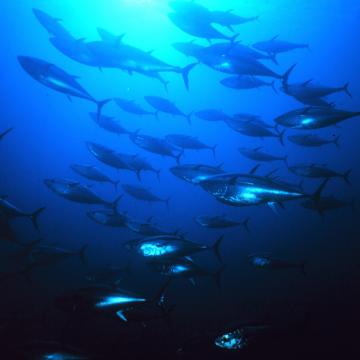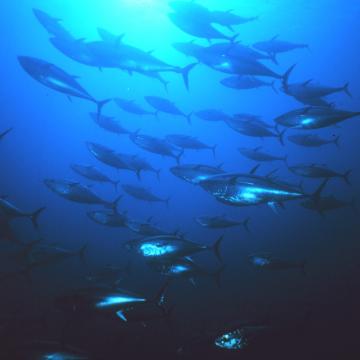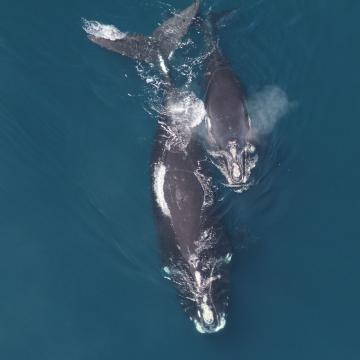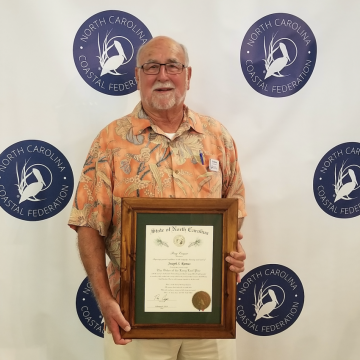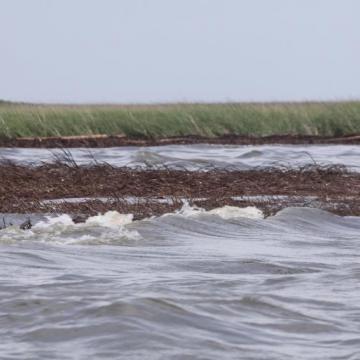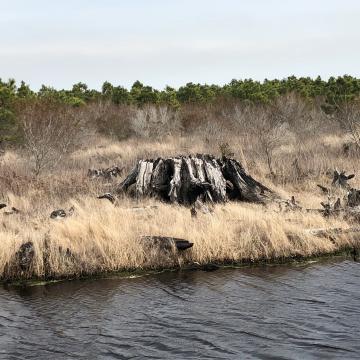-
NewsThe ratio of carbon isotopes in three common species of tuna has changed substantially since 2000, suggesting major shifts are taking place in phytoplankton populations that form the base of the ocean’s food web, a new international study finds.
-
NewsScientists at Duke University’s Marine Geospatial Ecology Lab and other leading marine research institutions worldwide have created an open-access online database that maps the movements of migratory species through the open ocean.
-
NewsAs new moms, North Atlantic right whales tone down their underwater vocalizations and “whisper” to their young calves to avoid attracting predators, a new study by scientists at Syracuse University, Duke University and NOAA Fisheries’ Northeast Fisheries Center finds.
-
NewsLocal conservation can boost the climate resilience of coastal ecosystems, species and cities and buy them precious time in their fight against sea-level rise, ocean acidification and warming temperatures, a new paper by scientists at Duke University and Fudan University suggests.
-
NewsIn his newest book, Sea Level Rise: A Slow Tsunami on America’s Shores, Orrin Pilkey paints an eye-opening picture of the impacts sea level rise will have on the United States by the end of the 21st century.
-
NewsJoseph S. Ramus, professor emeritus at Duke University’s Nicholas School of the Environment, has been awarded the Order of the Longleaf Pine, one of the highest civilian honors the State of North Carolina bestows.
-
NewsA new study finds that shoreline erosion rates can double following the death of plants on wetland edges, such as these marshes in Louisiana’s Barataria Bay that were heavily oiled by 2010’s Deepwater Horizon oil spill.
-
NewsTropical and subtropical fish are taking up residence on shipwrecks and other sunken structures off the North Carolina coast. This pattern may continue or even accelerate in coming years given predictions of warming oceans under climate change, a new study co-led by Duke University scientists suggests.
-
NewsA new study by Duke Marine Lab researchers showcases the remarkable diving abilities of beaked whales and provides new clues on how they make a living at the extremes of depth and cold.
-
NewsA new international study finds that the Atlantic meridional overturning circulation (MOC), a deep-ocean process that plays a key role in regulating Earth’s climate, is primarily driven by cooling waters west of Europe.
-
NewsDuke University has acquired rights to create a 10,000-acre “carbon farm.” When fully operational, the farm could potentially store enough carbon to help Duke meet its goal of achieving carbon neutrality by 2024.
